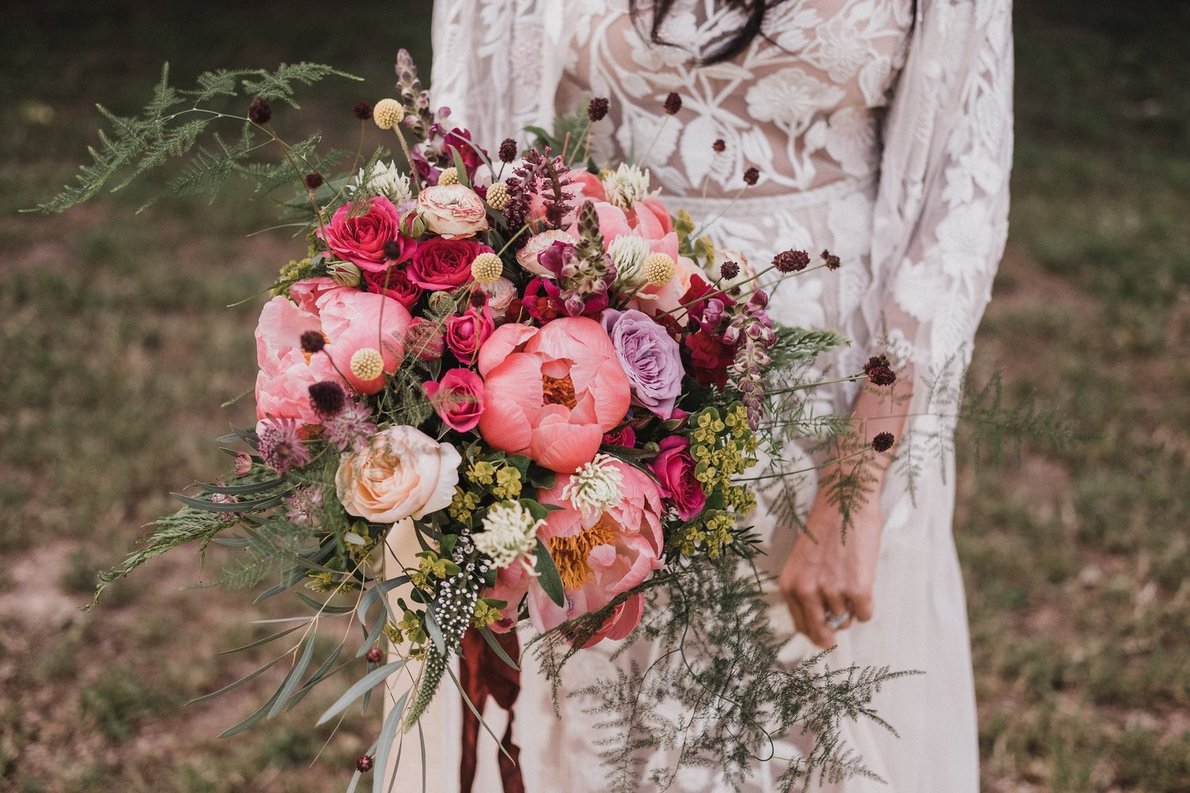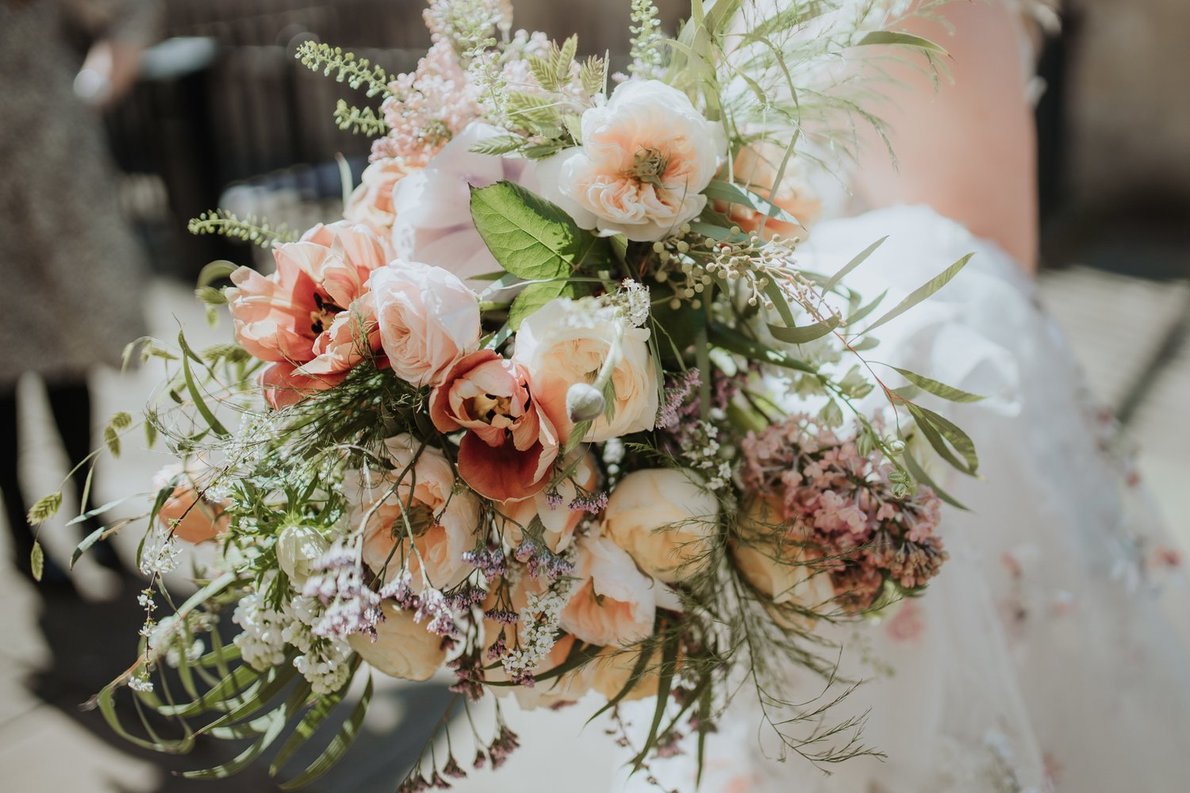Flowers became such an integral part of every wedding ceremony that there can be no wedding without a groom and a bride and there is no wedding without flowers.
Wedding bouquet is as important for a bride as her dress. But have you ever wondered where the tradition of carrying it came from? Although the origin is not completely clear we collected the most likely reasons that explain wedding bouquet tradition.

How to protect your bride?
This reason mostly explains the beginning of the bridal bouquet toss tradition. Several centuries ago people considered brides to be very lucky. And they thought that some of that luck would transfer to them if they were able to tear a piece off her dress. To distract those greedy for someone else’s happiness, the bride would throw her bouquet and while her guests try to catch it, newlyweds ran away.
Middle Age hygiene
Nothing romantic here. To put it mildly, the Middle Ages never paid much attention to hygiene. In the 15th century June was the main wedding month. Why? Because in May everyone was taking a bath. Sometimes for a year in advance.
A month later the brides didn’t smell like flowers that's for sure. So people gave them wedding bouquets to mask some of that odor from their future husbands.
International love language
In Victorian times there was a tradition to send messages with flowers for their loved ones. As you probably know, every flower has a different meaning according to the language of flowers (floriography). Due to this romantic association flowers became a new wedding tradition. One of the better ones if I may add.

Evil spirits
And we are back to the Middle Ages. In the Middle Ages, superstition was as much an integral part of human life as hygiene wasn’t. So to keep evil spirits from their weddings, brides added strong-smelling herbs to their bouquets.
The RIGHT mood
Roman newlyweds never had bouquets but they had everything for the right mood. Brides had garlands that symbolized a new life and fertility. Later on, this tradition evolved and they began to add dill - a strong aphrodisiac after proper preparation.